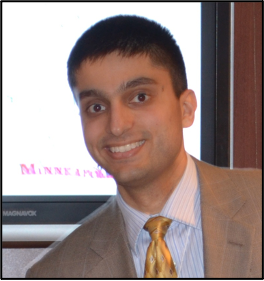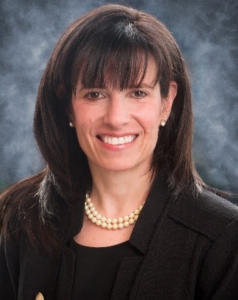
Building Stronger Regional Academia-Industry-Government Computing Research Partnerships
April 27, 2022
Zoom
Computing Research Association, L Street Northwest, Washington, DC, USA
Event Contact
Helen Wright
hwright@cra.org
5716436158
Event Type
Event Category
Regional hotspots for innovative and high impact computing research, including the Boston area and Silicon Valley, are iconic. But how did these regions develop as they did and what are key elements in the collaboration between academia, industry, and government that make them successful?
In this roundtable, CRA-Industry convened computing research partners across academia, industry, and government from Atlanta, Georgia to understand elements of successful approaches and to discuss the value of partnerships and best practices leading to success. Questions that were discussed:
- What AIG partnerships are most beneficial and how can we overcome any challenges?
- What is the best way to engage local or federal governments in such partnerships?
- What university initiatives are likely to lead to successful partnerships with local industry?
- What is the best way to form partnerships with all companies, beyond computing-centric, that are involved or want to be involved in computing research?
Erwin Gianchandani
Dr. Erwin Gianchandani is the National Science Foundation’s (NSF) Assistant Director for Translation, Innovation, and Partnerships, reporting to the NSF Director. For six years, he was the NSF Deputy Assistant Director for Computer and Information Science and Engineering (CISE), twice serving as NSF Acting Assistant Director for CISE. In this role, he contributed to the leadership and management of NSF’s CISE directorate, including formulation and implementation of the directorate’s $1 billion annual budget, strategic and human capital planning, and oversight of day-to-day operations. He has led the development and launch of several new NSF investments, including Smart & Connected Communities, Platforms for Advanced Wireless Research, the Civic Innovation Challenge, and the National Artificial Intelligence Research Institutes, often in collaboration with public and private partners. Before joining NSF in 2012, Dr. Gianchandani was the inaugural Director of the Computing Community Consortium, providing leadership to the computing research community in identifying and pursuing audacious, high-impact research directions. He has published and presented at international conferences on computational systems biology. He holds a B.S. in computer science and M.S. and Ph.D. in biomedical engineering from the University of Virginia.
Charles Isbell
Charles Lee Isbell Jr. has been a professor in the Georgia Institute of Technology College of Computing since 2002, and since July 2019 is the John P. Imlay, Jr. Dean of the College. His research passion is artificial intelligence. In particular, he focuses on applying statistical machine learning to building autonomous agents that must live and interact with large numbers of other intelligent agents, some of whom may be human. Lately, Isbell has turned his energies toward adaptive modeling, especially activity discovery (as distinct from activity recognition); scalable coordination; and development environments that support the rapid prototyping of adaptive agents. As a result, he has begun developing adaptive programming languages, worrying about issues of software engineering, and trying to understand what it means to bring machine learning tools to non-expert authors, designers, and developers.
Greg King
Greg King is Georgia Tech’s Associate Vice President for Economic Development, where he builds public and private partnerships that drive economic growth. He supports the region’s economic development efforts by mobilizing university resources most relevant for those companies considering investment in Georgia. His work includes building those networks and partnerships that contribute to industry ecosystems growth in the region. In addition, Greg helps to elevate the innovation districts of Technology Square and Science Square as a platform for discovery and development for co-located corporate partners, helping them establish locations and a network of collaborators to address their talent and technology goals. He earned a BS in Industrial Management from Georgia Tech and an MA in Economics from the University of Oklahoma.
Phyllis Schneck
Dr. Phyllis Schneck is vice president and chief information security officer (CISO) for Northrop Grumman. In this role, she oversees the company’s global cybersecurity strategy and policies and is responsible for the digital security of the company’s products, services and infrastructures. Schneck has 20 years of government and private-sector experience in senior cybersecurity positions. She joined Northrop Grumman in 2019 from Promontory, a division of IBM, where she led the firm’s cybersecurity practice as managing director and global leader of Cyber Solutions. Schneck earned her Doctorate in Computer Science from the Georgia Institute of Technology, as well as both a Master’s in Computer Science and a Bachelor’s in Computer Science and Mathematics from the Johns Hopkins University. In 2020, Schneck was an Inductee into the Georgia Tech College of Computing Hall of Fame.
Mary Hall 
Co-Organizer
University of Utah
Ben Zorn
Co-Organizer
Microsoft
See a summary blog here.
 Computing Research in Industry
Computing Research in Industry





